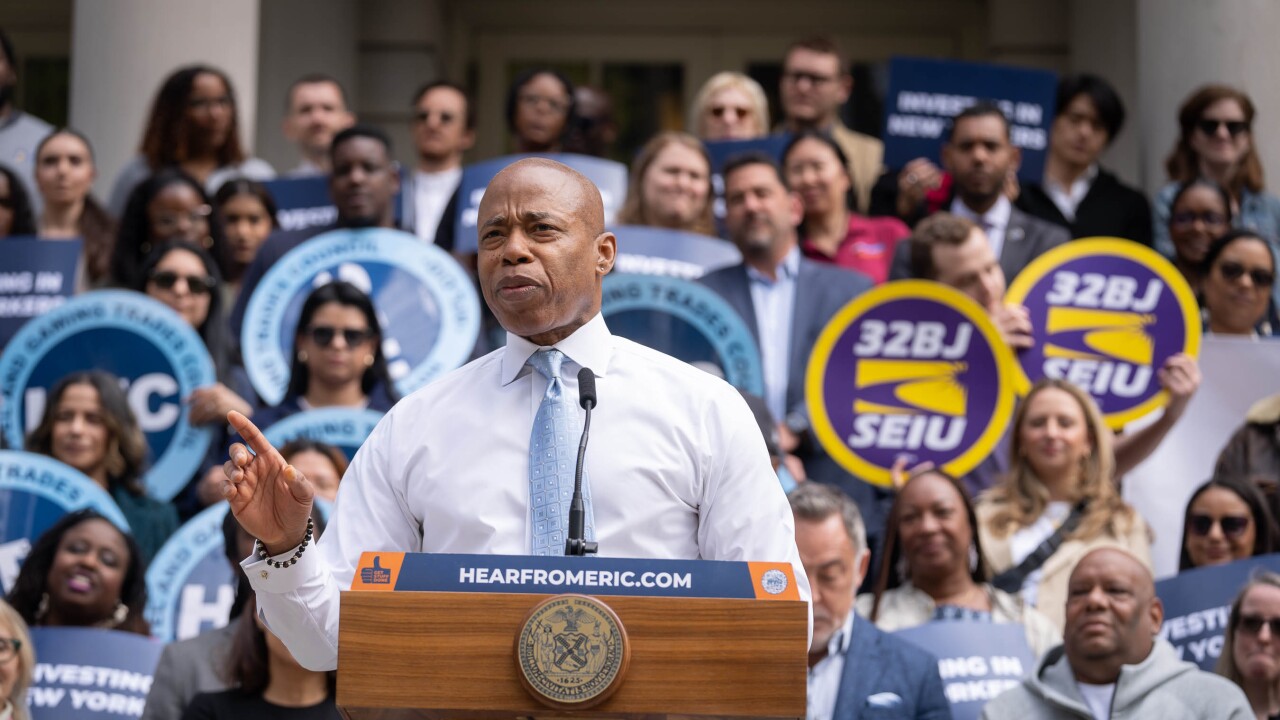
BRADENTON, Fla. – Miami officials will weigh a settlement with the Securities and Exchange Commission in light of a federal jury verdict finding the city guilty of securities fraud.
City Manager Daniel Alfonso said commissioners will discuss the matter Thursday during an executive session closed to the public.
Alfonso said he did not know if the city's decision - to accept the settlement or to appeal the verdict - would be publicly announced at the Sept. 22 meeting.
"We are working to negotiate on an SEC proposed settlement of what the penalty may or may not be," Alfonso said in an interview. "The SEC has already presented us with an offer."
Alfonso declined to provide more specifics, but he did say if commissioners accept the financial penalty the expense would come from the city's projected $137 million fiscal 2016 fund balance.
On Tuesday, commissioners briefly discussed the settlement when they adopted a nearly $1 billion budget for fiscal 2017.
Commissioner Frank Carollo asked how the payment for a financial penalty related to the SEC verdict would be budgeted, and Alfonso said it would be considered a liability to be paid from the current spending plan.
"We're working on preliminary language on a settlement, which will come to the commission I think in early October," Alfonso said.
After a 12-day trial, a jury on Sept. 14 deliberated about four hours before finding that Miami and its former budget director, Michael Boudreaux, defrauded investors by not disclosing the city's true financial picture in connection with three bond offerings in 2009.
U.S. District Judge Cecilia M. Altonaga has ordered the SEC to file its request for relief by Sept. 28, which is expected to include financial penalties.
The SEC contended that Miami and Boudreaux used interfund transfers to mask a deficit, shield the information from investors, and obtain more favorable bond ratings for $150 million in debt that was sold in 2009, in violation of securities laws.
Miami is the first municipality to ever violate an existing SEC cease-and-desist order.
In 1999, the SEC instituted administrative proceedings charging Miami, its former city manager, Cesar Odio, and former finance director, Manohar Surana, with securities violations.
The violations stemmed from disclosures that failed to provide information about the city's deteriorating financial condition in connection with $22.5 million of general obligation bonds, $22 million of revenue bonds, and $72 million of pension bonds, which were issued at various times in 1995.
The debt was sold amid a severe financial crisis that led the Gov. Lawton Chiles to appoint an Emergency Financial Oversight Board in 1996 to overcome a $68 million deficit.
An SEC administrative law judge concluded in 2001 that Miami "falsely certified" in bond documents and secondary market disclosures that there had been no material adverse change in its financial condition.
Miami appealed the judge's ruling, but it was upheld by the SEC in 2003, which ordered the city to cease-and-desist from committing future violations of the antifraud provisions of the securities laws.
Odio and Surana both entered settlements with the SEC agreeing not to violate securities laws.
In 2001, Dain Rauscher Inc., which underwrote the city's 1995 pension bond issue when the firm was known as Rauscher Pierce Refsnes Inc., paid $200,000 to settle SEC charges that it failed to ensure that Miami's financial condition was fully disclosed in the official statement.





